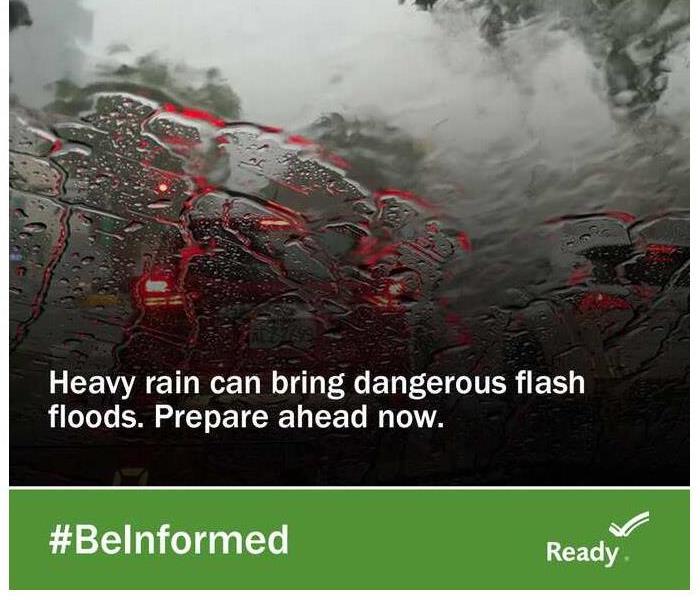What you should know about Flood Safety
9/7/2021 (Permalink)
Flood Safety is something that we must consider more and more in the Northeast. Flash flooding is a term we are getting all to used to hearing.
September brings with it National Preparedness Month. We're used to preparing for the Winter months up here, not so much floods. I think it's time we start thinking about floods, Don't you? Let's DIVE in shall we!
Below is a list of things to consider ahead of the next rainy season.
- Make a family emergency communication plan and include pets.
For information on how to get started; follow this link: Make a Plan - Have emergency supplies in place at home, at work, and in the car.
For information on what your emergency kit should hold; follow this helpful link: Build a Kit - Check on your neighbors to make sure they’re okay. Especially your elderly neighbors who may not be able to gather the supplies needed to ride out a storm.
- Know what to do before, during, and after a flood. To learn more about the three stages of flood preparation, follow this informative link: Floods
- Flood insurance takes 30 days to take effect, so purchase now to protect your family!
- Homes are not the only thing at risk! If you are a business owner, you have many other things that need to be considered about how you can prepare for a disaster at your business. For a comprehensive list of needs and considerations for your business, follow this informative link: Business
- Listen to local officials by radio, TV or social media. In case of power outages, have a battery powered radio on hand so that you won't miss important information.
- Evacuate when advised by authorities or if you are in a flood or flash flood prone area. Know your evacuation route!
- If you are on high ground above flooded areas, being prepared to stay where you are may be the best protection.
- Never drive or walk through flooded streets; Turn Around, Don’t Drown! Do not go through flood waters.
For more information about ANY type of disaster preparedness, follow this helpful link: https://www.ready.gov/
#BeInformed






 24/7 Emergency Service
24/7 Emergency Service
